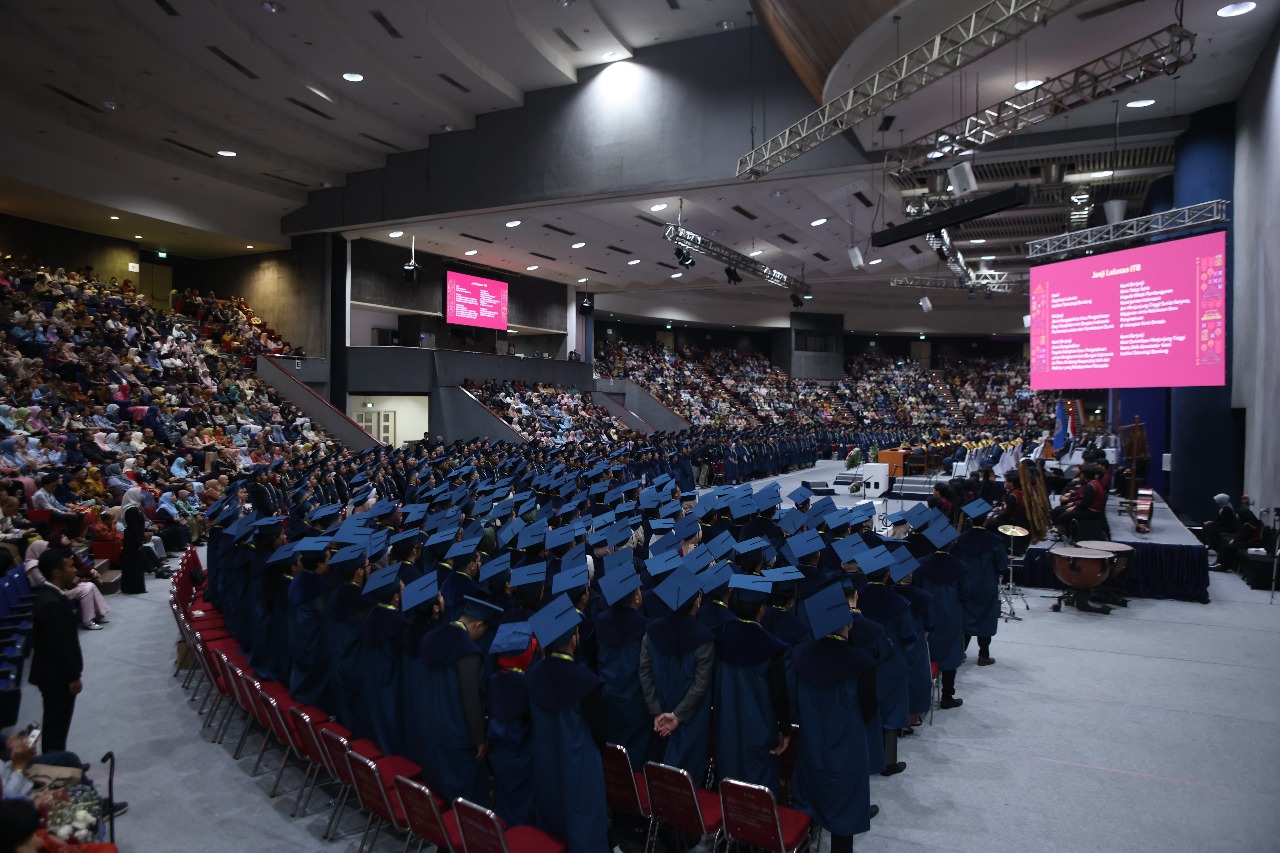Visiting ITB, Malaysian Foreign Minister Discusses the Role of Science and Technology for Peace in ASEAN
By Adi Permana
Editor Adi Permana

BANDUNG, itb.ac.id—Malaysia’s Ministry of Foreign Affairs held a face-to-face discussion with Institut Teknologi Bandung (ITB) in the ITB East Hall, Thursday (11/11/2021). The meeting discussed “Science and Technology for Peaceful Coexistence in ASEAN”.
Present as resource persons were the Minister of Foreign Affairs of Malaysia, YB Dato’ Saifuddin Abdullah with Rector of ITB, Prof. Reini Wirahadikusumah, Ph.D., and guided by the Secretary of the Institute Prof. Dr.-Ing. Ir. Widjaja Martokusumo. The activity was also attended by other ITB leaders, including the Vice-Rector for Academic and Student Affairs, Prof. Dr. Ir. Jaka Sembiring M.Eng., Vice-Rector for Research and Innovation, Prof. Ir. I. Gede Wenten, Ph.D., and the Deans of the Faculty/School ITB with the Malaysian delegation.
Starting the discussion, Prof. Reini Wirahadikusumah, Ph.D., introduced the vision, mission and character of ITB as a “Superior Scientific Culture” campus in various fields, including teaching and learning, research, and innovation. The Chancellor also explained how ITB is developing an innovation ecosystem, be it a virtual one on the https://lpik.itb.ac.id page or through the ITB Innovation Park, built in the Ganesha area and the Gedebage area.
Prof. Reini also explained that ITB applies the concept of Sandboxing for the downstream process from basic research to becoming a product through collaboration with the government and industry. In this session, ITB’s aspiration to become a Defense-Hub and Aerospace Defense Research Hub in Bandung was also explained, which in its realization requires support in the form of adequate facilities. The Rector also said ITB’s contribution in mitigating COVID-19 and national economic recovery in Indonesia.
Regarding the topic of discussion, the Rector said that Indonesia and other ASEAN countries, especially Malaysia, have many similarities, especially in terms of history and culture. “With these many similarities, Indonesia and Malaysia are expected to work together to promote and strengthen our position to shape a good future for both parties,” she said.
With favourable geographical conditions, both Indonesia and Malaysia must be able to introduce Intercultural Understanding, especially to the younger generation, to work together in science and technology to solve regional problems such as energy, food, sustainability, and water security.
In this regard, Prof Reini hopes that the understanding, similarities, and closeness between Indonesia, Malaysia, and other ASEAN countries can create a space for academic dialogue between scientists, researchers, and policymakers. Also, it is expected that Indonesia and Malaysia conduct more collaborations between countries, especially in science and technology, to research and create innovations.
Three Pillars of Peace in ASEAN
Malaysian Foreign Minister, YB Dato’ Saifuddin Abdullah, said three important pillars support peace and harmony in ASEAN: political security, economy, and socio-cultural problems. Unfortunately, state officials and decision-makers often ignore the third pillar related to socio-cultural issues and only focus on other pillars.
Therefore, Indonesia and Malaysia must be closer to socio-cultural relations. Dato added that science and technology could help us live in peace and harmony, proven during this COVID-19 pandemic. By focusing on the development of science and technology, we can strengthen relations between the two countries.
There was also a discussion session between the Malaysian Minister of Foreign Affairs and the Deans of ITB. The discussion concluded that coordination was needed between Indonesia and Malaysia to excel the current global issues. Moreover, further talks were needed relating to handling issues such as increasing collaboration between ITB. with universities in Malaysia through student exchanges and other opportunities. Several challenges that Indonesia and Malaysia are struggling with are the issue of haze between Malaysia, Indonesia, and Singapore, the problem of Rainforest research in Kalimantan, the problem of oil palm plantations, and other issues so that Indonesia, Malaysia, and other ASEAN countries can construct a solution.
Reporter: Fajris Zahrotun Nihayah (Physics, 2020)
Translator: Billy Akbar Prabowo (Metallurgical Engineering 2020)

.jpg)

.jpg)
.jpg)
.jpg)
